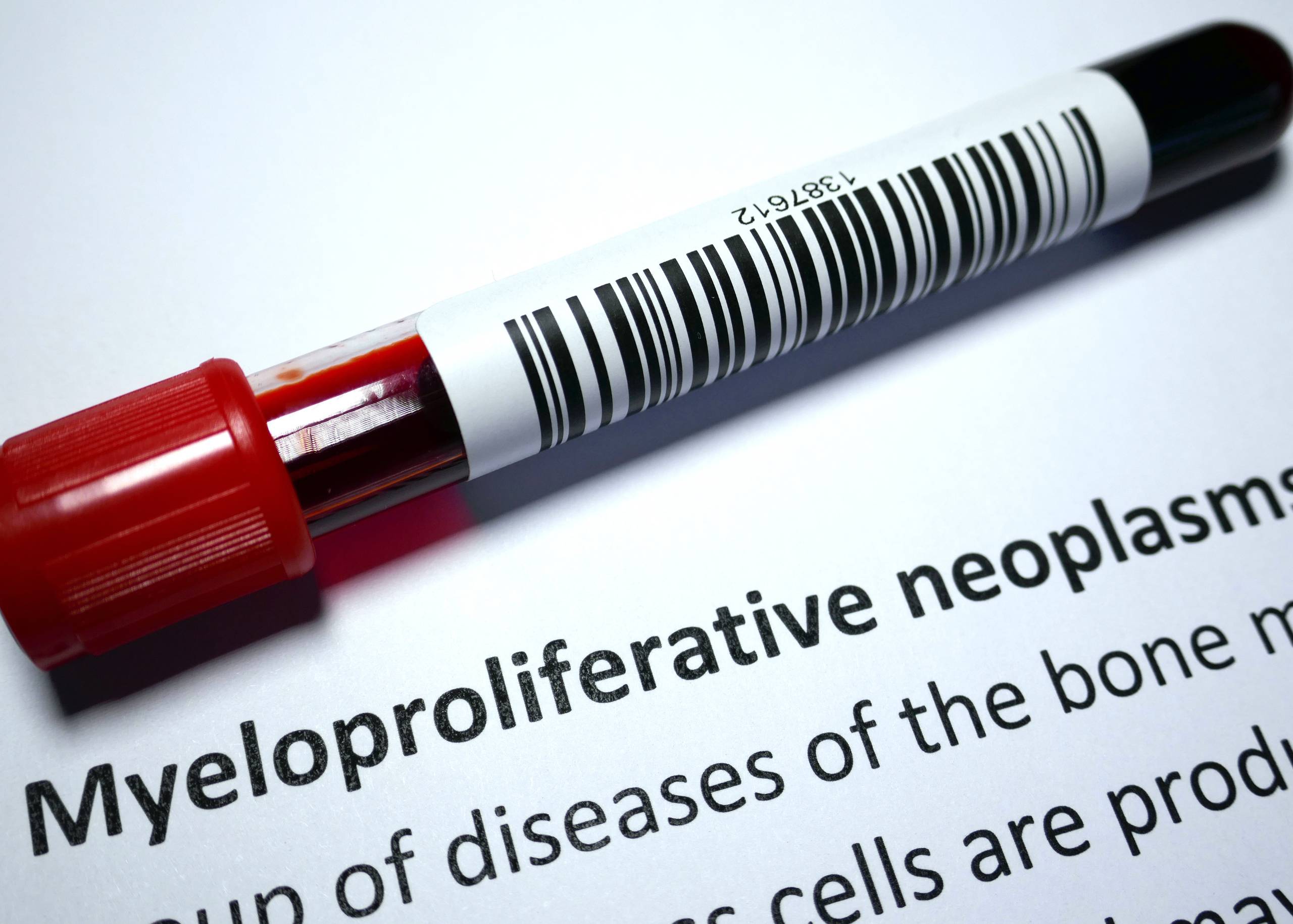Myeloproliferative neoplasms (MPN) are a group of clonal hematopoietic disorders characterized by increased production of immature blood cells.
Types of Myeloproliferative Neoplasms
There are three types of MPN:
Polycythaemia Vera (PV) is a chronic blood disorder in which the body produces too many red blood cells, leading to an increase in the volume of blood and subsequent swelling. PV can also cause anemia, with insufficient red blood cells. Excessing red blood cells can lead to blockage in blood vessels, which may cause symptoms such as leg or abdominal pain or headaches.
Essential Thrombocythaemia (ET) is a rare genetic disorder that causes an increased number of platelets in the blood. This can lead to excessive bruising and bleeding, as well as clotting issues, if too many platelets are present in the bloodstream.
Myelofibrosis (MF) is a condition where bone marrow becomes abnormal and cannot produce normal amounts of blood cells. This condition can cause anemia due to abnormal red blood cell production and excessive bleeding due to low platelet counts.
Causes of Myeloproliferative Neoplasms
The causes of myeloproliferative neoplasms are not well understood. Myeloproliferative neoplasms are thought to occur when there is an imbalance between the body’s production and the destruction of blood cells.
Diagnosis
Myeloproliferative neoplasms (MPNs) can be diagnosed by a variety of approaches, including,
Symptoms: Patients with anemia or thrombocytopenia may present with fatigue, headaches, weakness, shortness of breath, or nosebleeds.
Physical Examination: The presence of splenomegaly (enlarged spleen) or hepatomegaly (enlarged liver) will be noted on physical exam. Additional findings may include enlarged lymph nodes or bone marrow hypercellularity.
Laboratory Tests: A complete blood count is a common laboratory test used to diagnose MPNs, as it can indicate anemia and thrombocytopenia. Other lab tests may include liver function tests, iron studies, and serum protein electrophoresis.
Bone Marrow Biopsy: A bone marrow biopsy is the gold standard for diagnosing MPNs; however, this test is invasive and can cause serious complications if not performed correctly by a trained physician who has experience performing these procedures in patients with compromised immune systems
Treatment
Treatment for MPNs depends on the disorder type and the symptoms’ severity. Treatment options may include medications, chemotherapy, radiation therapy, and stem cell transplantation.
Medications: Medications such as hydroxyurea, anagrelide, and interferon-alpha are commonly used to reduce the production of abnormal blood cells and reduce symptoms.
Chemotherapy: Chemotherapy destroys abnormal cells and reduces the risk of complications. It is often used in combination with other treatments.
Radiation Therapy: Radiation therapy is used to target and destroy abnormal cells. It is usually used in combination with other treatments.
Stem Cell Transplantation: Stem cell transplantation is used to replace abnormal cells with healthy ones. It is usually used in combination with other treatments.
Hematologists and Bone Marrow Transplantation experts at Burjeel Medical City, Abu Dhabi, treat Myeloproliferative Neoplasms with the latest medical advancements.





